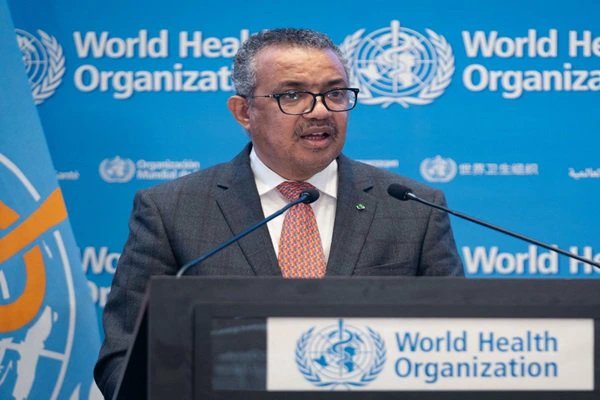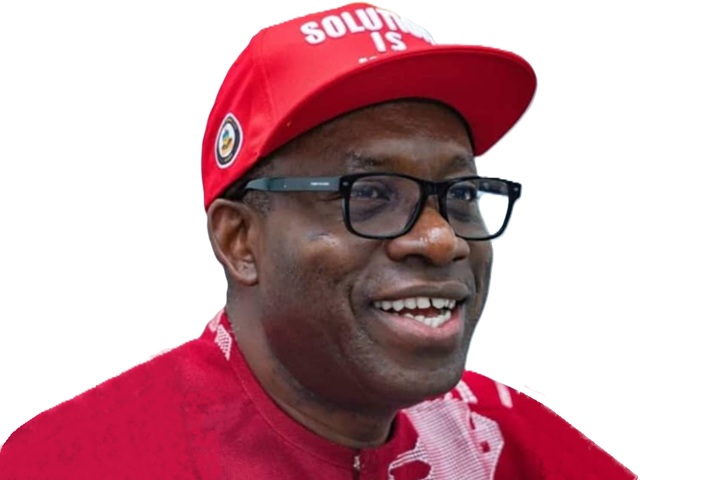News
Recession: Man jumps to death in Lagos after he was laid off

A man jumped to his death in Apapa, Lagos because of economic recession in Nigeria under President Muhammadu Buhari’s government.
According to the reporter, the man could not afford to see his family die of hunger as he was laid off.



———-
OLD ELOMBAH.COM REPORT: IT’S OFFICIAL, NIGERIA’S ECONOMY IS IN RECESSION!
After a two-week delay in releasing the all important Gross Domestic Product (GDP) economic growth data, Nigeria’s National Bureau of Statistics (NBS) will on Wednesday, officially confirm that the country is in recession with data pointing to a further GDP contraction of minus two percent (-2%) in the second quarter of fiscal year 2016, BusinessDay can authoritatively reveal.
The data would show a record lowest deep in GDP posted by the country in 25 years after the negative growth of minus 0.36 percent (-0.36%) recorded in the first quarter. Technically, an economy is in recession if it records two consecutive quarters of negative growth.
Nigeria’s GDP contracted by 0.36 percent year-on-year in the first three months of 2016, as the country’s non-oil sector contracted mainly due to a slowdown in the services and manufacturing sectors, caused largely by a weakening naira, while lower oil prices continue to drag the oil sector down.
The Q1 GDP was against 2.11 percent expansion in the previous period and way below forecasts of 1.7 percent growth. But before the first quarter contraction, the last time that Nigeria saw a negative annual growth rate, going by the rebased numbers, was in 1991 at -0.55 percent. Before that, it had settled at -0.51 percent and then -7.5 percent in 1983.
The figures would indicate that agriculture showed some growth in the second quarter, but both industry and services contracted, a highly placed source told BusinessDay. “Generally, industry, which includes manufacturing was largely affected by the difficulty in accessing forex,” the source said.
Figures would also show that the crude oil and gas sector recorded the worst performance.
Recent reports have it that Nigeria has lost over N1.1 trillion in oil revenues since the resurgence of militancy in the oil-rich Niger Delta region, as oil installations witnessed about 28 attacks just between February 10, 2016 and the end of last month (July) by the rampaging militants.
After hitting a two-year low in June, due to militants’ attacks on oil facilities, production managed to increase from the 1.4m barrels per day to 1.5m bpd, still much lower than the 2.2m bpd OPEC quota for the country, as well as 2016 budget estimates.
A confirmation by the NBS on Wednesday is ominous as it would obliterate prediction by the International Monetary Fund (IMF) earlier this year that Nigeria would see growth of around 1.8 percent by end of the year. Analysts say that this is because to attain a positive growth by the end of the year, the economy would need significant positive growth for the remaining third and fourth quarters, which remains unlikely, as the economy still struggles with a weakening naira and low oil prices.
But in the first quarter, the oil sector shrank 1.89 percent year-on-year, following an 8.28 percent contraction in the previous quarter. Oil production stood at 2.11 million barrels per day (mbpd), 0.05 mbpd, lower than in the preceding period.
Industrial production shrank 2.24 percent: manufacturing declined 8.39 percent (-13.09 percent in Q4), mining and quarrying fell by 2.96 percent (-8.05 percent in Q4) and electricity, gas, steam and water supply dropped 44.46 percent (+1.2 percent in Q4) and construction fell 5.37 percent (+4.14 percent in Q4).
The non-oil sector went down 0.18 percent, from a 3.14 percent growth in the previous period. Services expanded at a much slower 0.8 percent, compared with a 3.69 percent increase in the previous period.
Information and communication grew 4.07 percent (+4.21 percent in Q4); internal trade went up by 2.02 percent (+4.69 percent in Q4); while real estate decreased 4.69 percent (+0.79 percent) and finance and insurance fell 11.28 percent (+6.41 percent in Q4).
Agriculture grew 3.09 percent, lower than a 3.48 percent expansion in Q4.
Quarter on quarter, real GDP dropped by 13.7 percent, following a 3.1 percent growth in the previous period.
© Copyright 2016 www.elombah.com. Send eyewitness accounts/reports/articles to publisher@elombah.com; follow us on twitter handle @Elombah; like our Facebook page: “Elombah.com”.
Share your thoughts in the comment box below:
For Diaspora Digital Media Updates click on Whatsapp, or Telegram. For eyewitness accounts/ reports/ articles, write to: citizenreports@diasporadigitalmedia.com. Follow us on X (Fomerly Twitter) or Facebook












